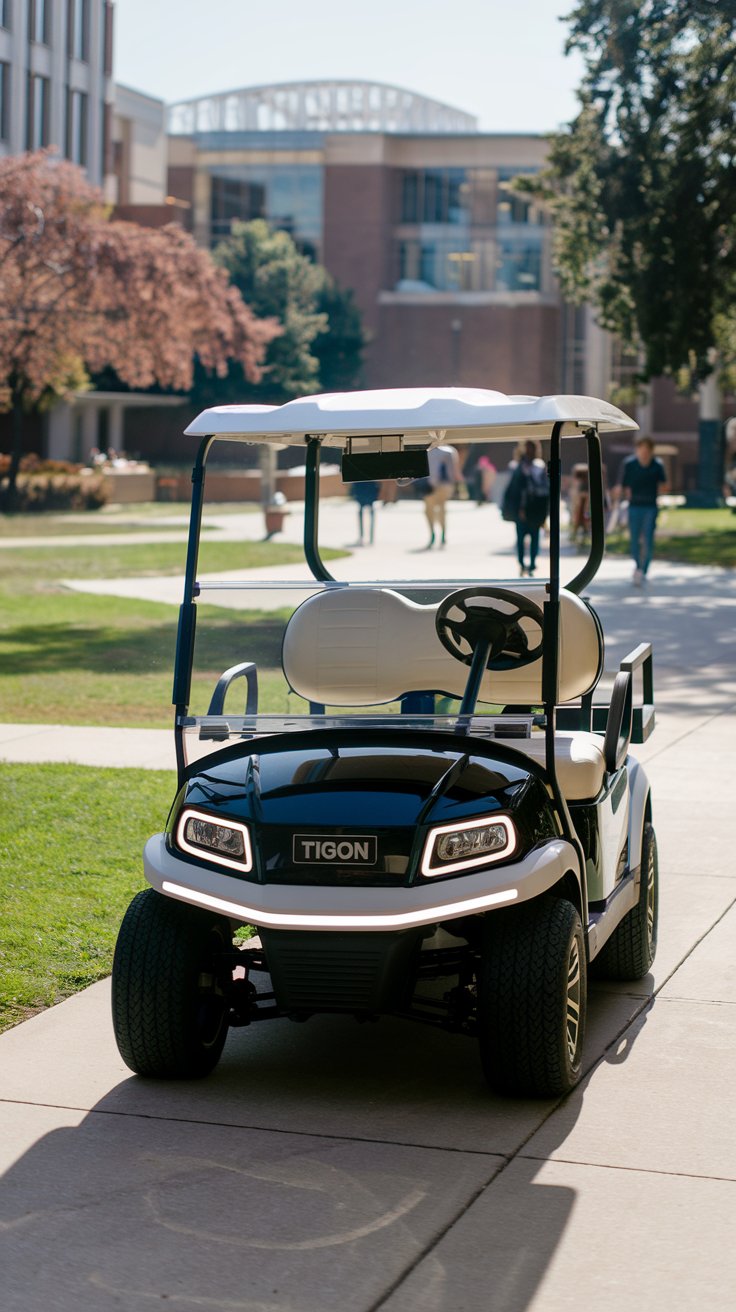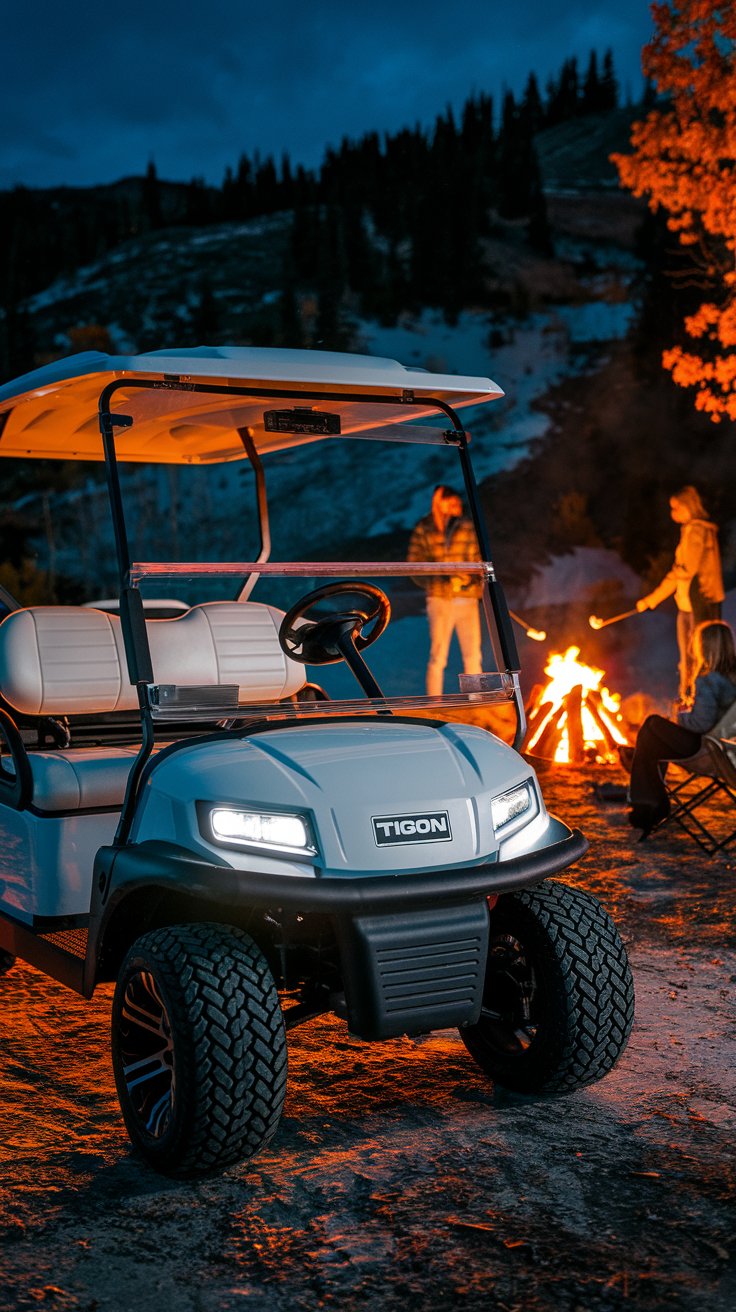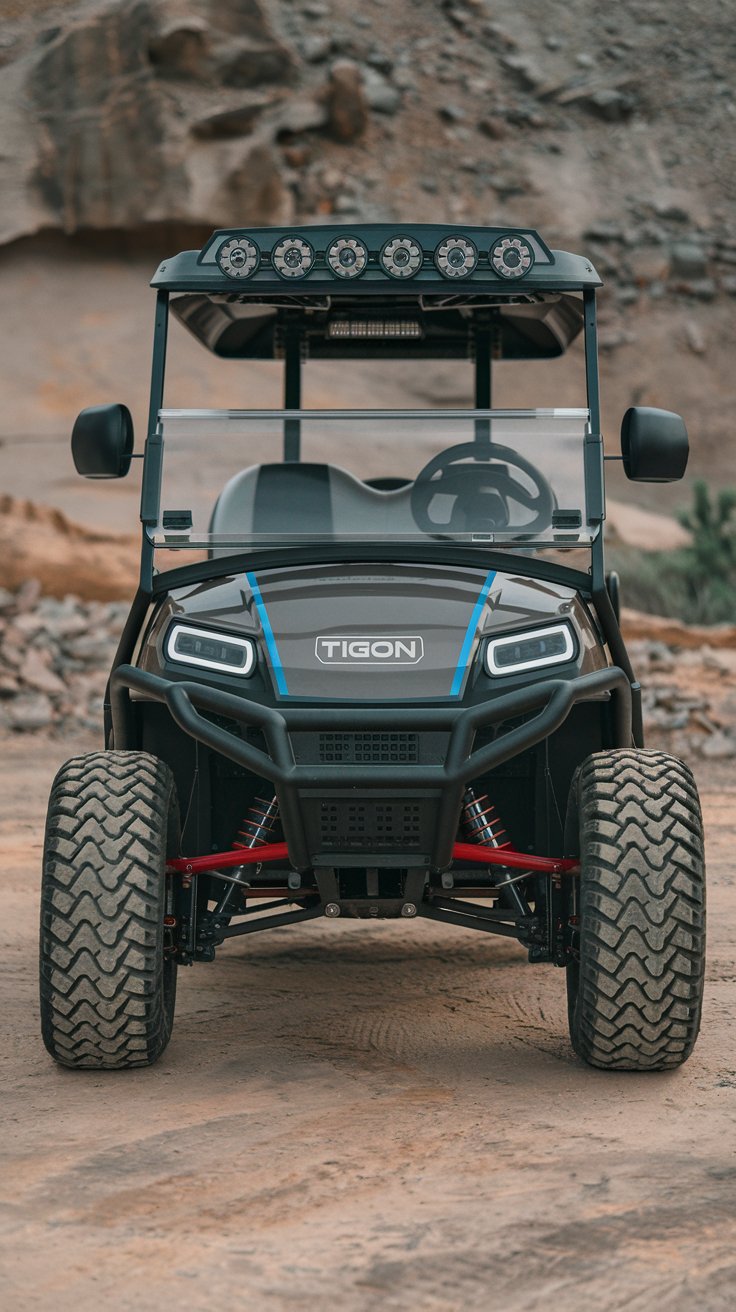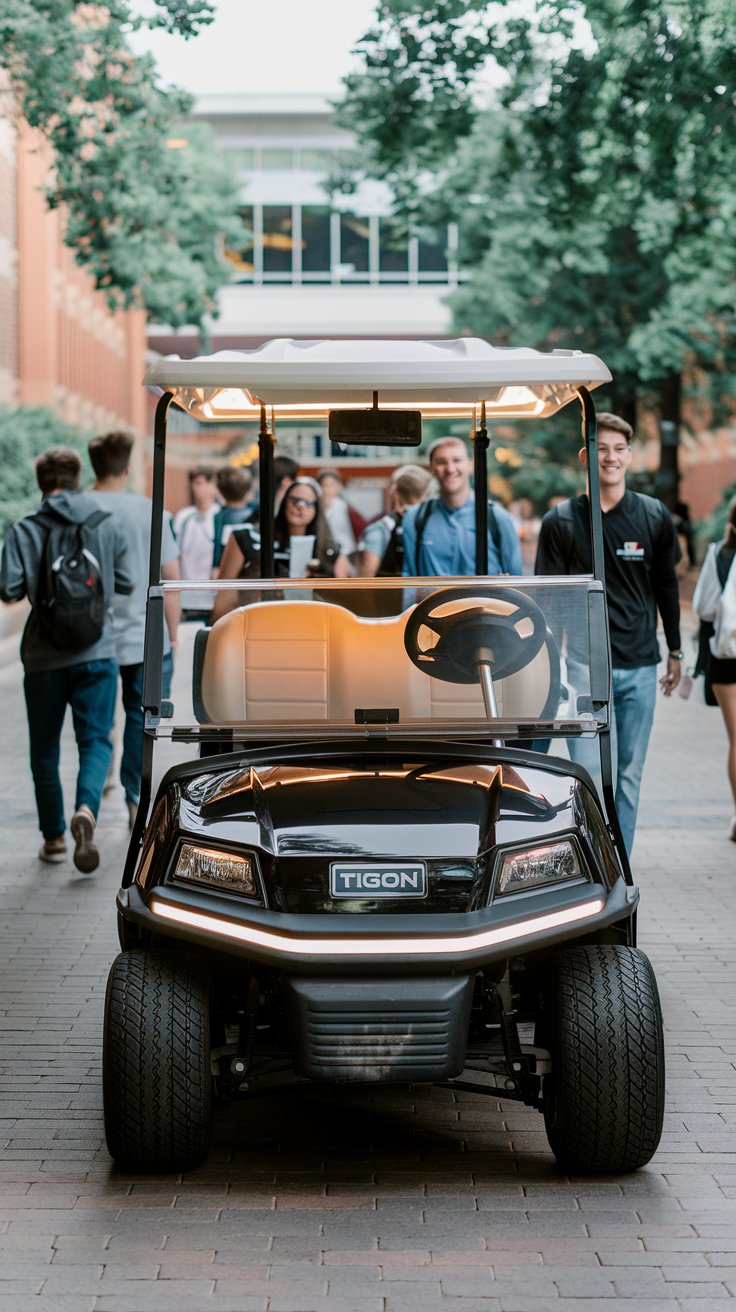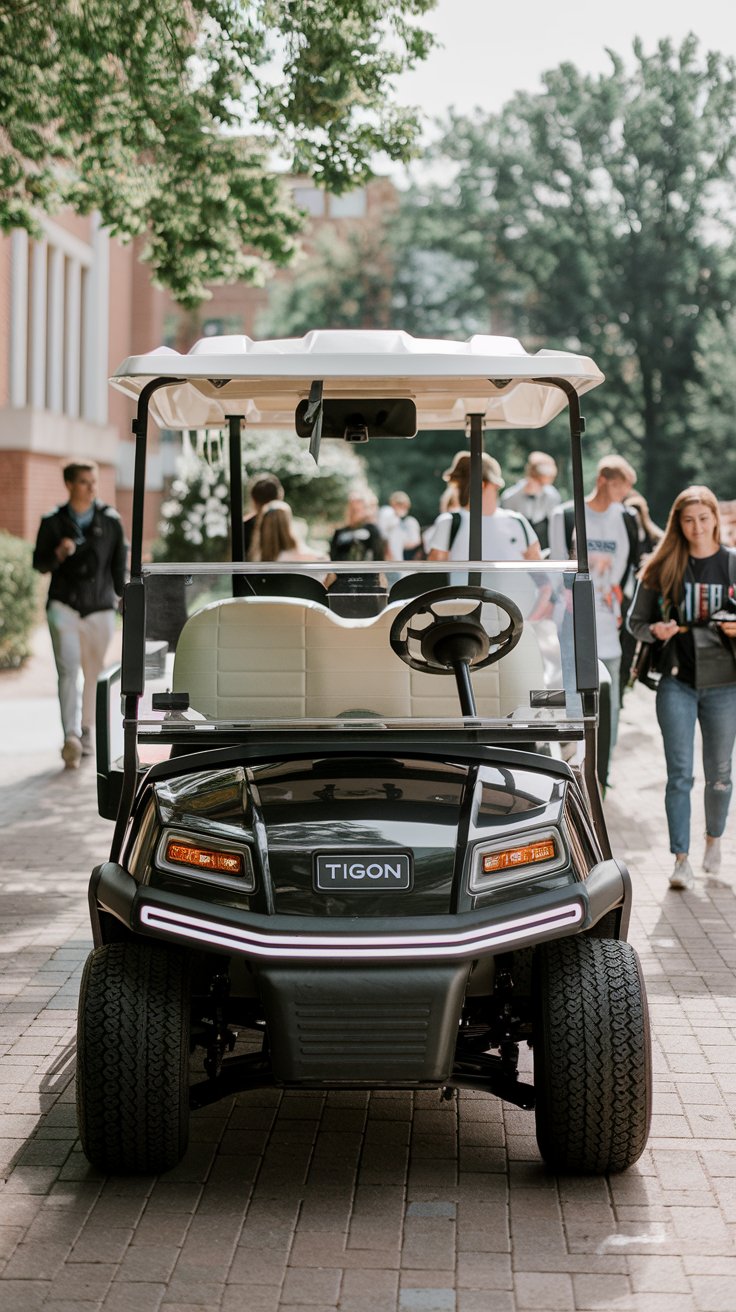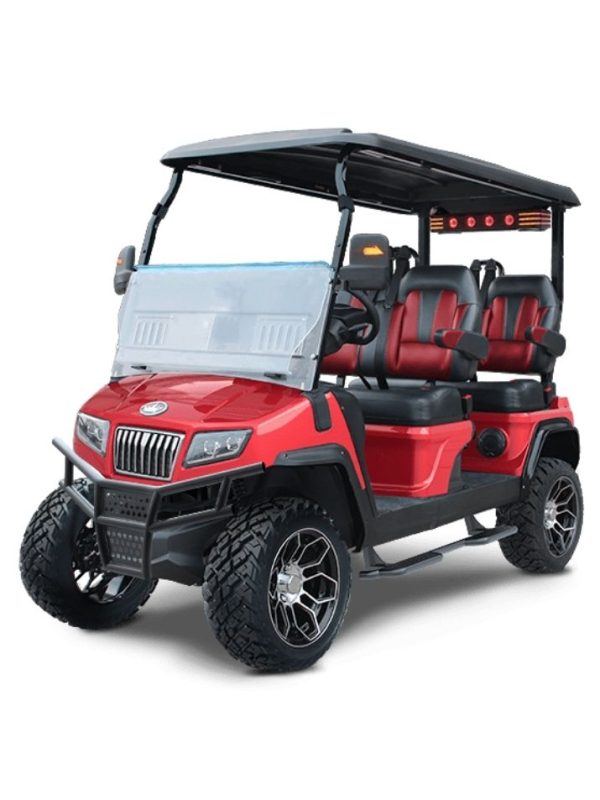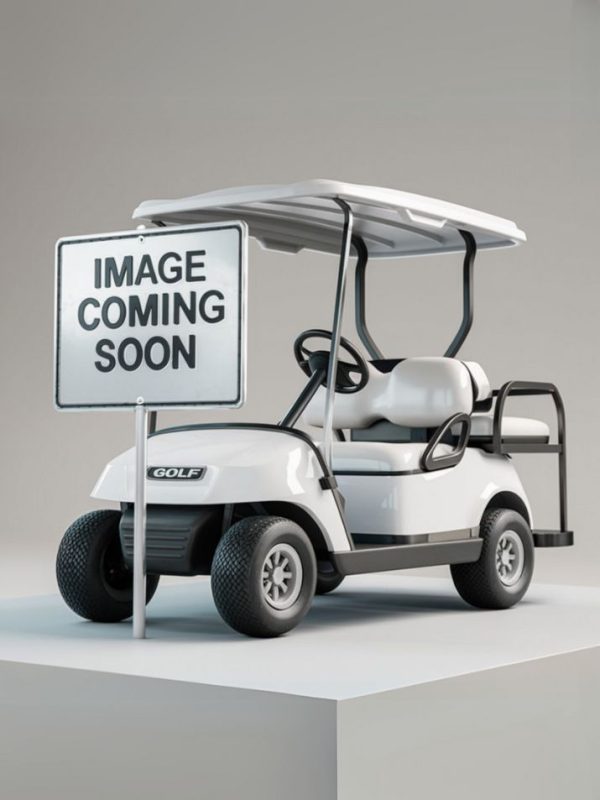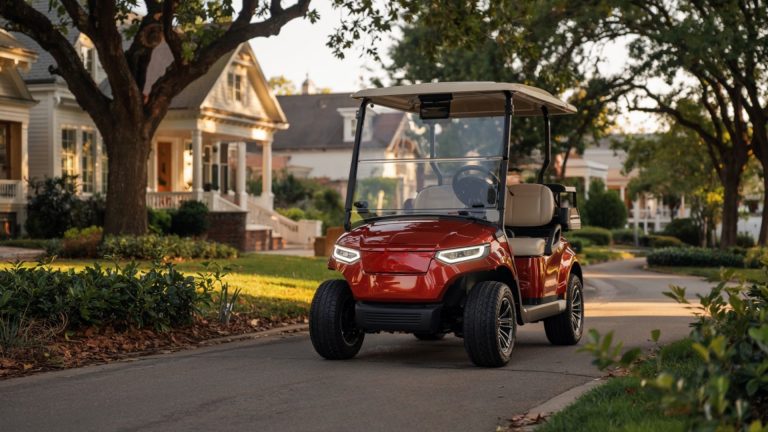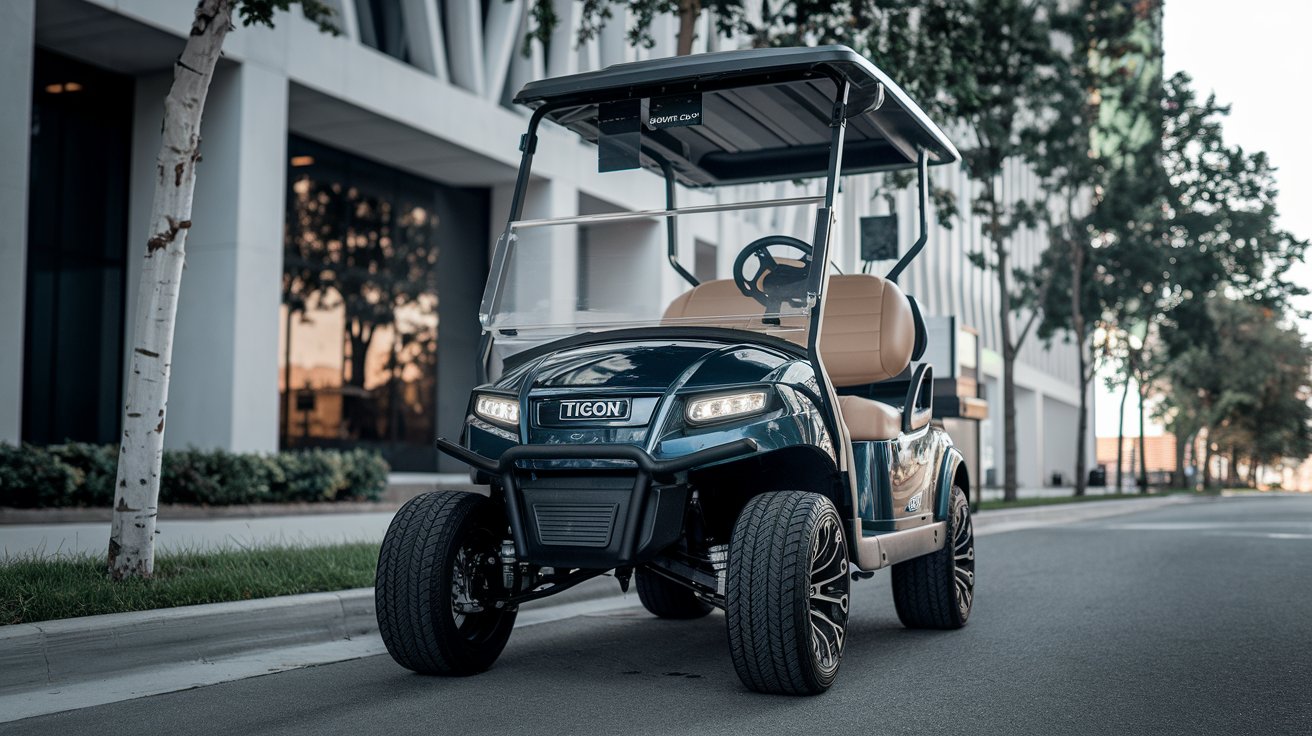
Where Are Golf Carts Street Legal?
What states Are Golf Carts Street Legal?
Golf carts are street legal in many areas across the United States, but the rules governing their use vary by state and local jurisdictions. To determine if golf carts can legally be driven on public roads in your area, it’s essential to understand the specific state, county, and municipal regulations. Here’s a comprehensive overview of where golf carts are street legal and the requirements for their use.
General Criteria for Street-Legal Golf Carts
In most states, golf carts can be driven on public roads if they meet certain conditions:
- Road Speed Limit: Golf carts are typically allowed on roads with a speed limit of 35 mph or less.
- Low-Speed Vehicle (LSV) Classification: To qualify as a Low-Speed Vehicle (LSV), a golf cart must:
- Have a top speed between 20-25 mph.
- Be equipped with safety features such as headlights, taillights, turn signals, mirrors, seat belts, and a horn.
- Registration and Insurance: Many states require golf carts to be registered with the DMV and insured.
- Driver Licensing: Operators are often required to hold a valid driver’s license.
States Where Golf Carts Are Street Legal (With Restrictions)
Here’s a summary of states where golf carts are permitted on public roads, subject to specific rules:
| State | Street-Legal Status |
|---|---|
| Alabama | Permitted in specific towns with local regulations. |
| Arizona | Allowed on roads with speed limits under 35 mph; must meet LSV requirements. |
| California | Permitted in designated golf cart-friendly communities or roads under 25 mph. |
| Florida | Street-legal on roads under 35 mph with safety features and registration. |
| Georgia | Permitted in designated areas; LSV registration expands road access. |
| Indiana | Allowed in towns that permit golf carts; varies by municipality. |
| Michigan | Legal in golf cart-friendly towns and counties with approved ordinances. |
| North Carolina | Permitted in approved cities and towns; must meet safety and equipment requirements. |
| South Carolina | Legal on roads under 35 mph and within 4 miles of the owner’s residence. |
| Texas | Permitted on roads under 35 mph; additional local regulations may apply. |
| Virginia | Allowed in designated golf cart zones. |
| Washington | Legal on streets under 25 mph or in golf cart zones. |
| Wisconsin | Approved in municipalities that permit their use; LSV registration may be required. |
Factors That Affect Street Legality
- Local Ordinances: Some states allow cities and counties to decide where and how golf carts can operate. Specific neighborhoods, retirement communities, and resort areas often permit golf carts, even if surrounding areas do not.
- Safety Equipment Requirements: To be classified as street-legal, a golf cart typically needs:
- Headlights and taillights.
- Turn signals.
- Seat belts.
- Rearview and side mirrors.
- DOT-approved windshields (in some states).
- Reflectors and horns.
- Registration as an LSV: Many states require golf carts to be registered as Low-Speed Vehicles (LSVs) with the local Department of Motor Vehicles (DMV).
States Where Golf Carts Are Street Legal (Without Restrictions)
In some states, golf carts are allowed on public roads with fewer restrictions compared to states that require additional safety features, registrations, or speed limits. However, even in these states, golf carts must generally operate in specific areas or under clear guidelines, such as daylight hours or community roads. Below are examples of states where golf carts enjoy more lenient street-legal usage:
| State | Street-Legal Guidelines |
|---|---|
| South Dakota | Golf carts are permitted on roads without the need for additional modifications, as long as local ordinances allow it. No LSV registration required. |
| Nebraska | Allowed in many small towns and rural areas. Typically, no registration is required, but local governments may impose guidelines. |
| Wyoming | Permitted on most low-traffic roads without the need for LSV conversion, depending on municipal approval. |
| Kansas | Golf carts are allowed on roads under 30 mph in many areas without requiring extensive safety features or registration. |
Key Considerations
- These states often rely on local ordinances to decide on additional rules, such as whether safety equipment like lights or mirrors is required.
- Roads with higher speed limits (above 35 mph) are typically off-limits even in these more lenient states.
- While fewer modifications may be required, owners should still ensure their carts are in safe operating condition.
Why Restrictions May Still Apply Locally
Even in states with lenient rules, municipalities may introduce their own restrictions to improve safety and traffic management. Always confirm with your local government to ensure compliance.
These states offer more flexibility for golf cart users, making them ideal for those looking to enjoy their carts on public roads without the burden of extensive requirements.
Street-legal golf carts are also permitted in some countries, including Canada, Australia, and New Zealand, in designated communities or regions. Requirements vary widely, but similar safety and registration rules apply.
Golf carts are street legal in many states and localities across the U.S., provided they meet federal, state, and local regulations. Always check with your local government or DMV to confirm requirements, including road restrictions, necessary safety equipment, registration, and insurance. By ensuring compliance, you can enjoy the convenience and fun of driving your golf cart on public roads safely and legally.
#streetlegal #lsv #nev #msv #ptv
GET THE GOLF CART LSV AT THE RIGHT PRICE!
Tigon Golf Carts proudly offers 0% Vehicle Financing, making it easier than ever to own your dream golf cart. With flexible payment options and competitive rates, we ensure that Upgrading or Purchasing for the first time is not only exciting but also financially feasible for our customers, allowing you to hit the road in style without breaking the bank.

